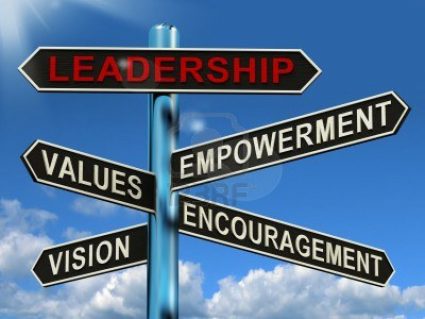Recently, I wrote, “Sales People Don’t Have The Time To Create Value With Customers...”
Clearly, this is unacceptable if we are to drive business results. If we aren’t taking the time to create value with customers, then customers have no reason to waste their time with us.
In the post, I suggested sales people don’t know how to create value in the time they are taking. Even going so far to suggest sales people don’t know how to create value.
I’m sure many people read the post and started leaping for solutions. I can imagine a flurry of activity in creating playbooks, content, training around how to create value. Hopefully, managers will also start coaching it. I suggested managers ask a couple of simple questions, in pre call planning, asking, “What value will you be creating for the customer in this call/meeting?” In post call debrief, “What value did you create, how did the customer acknowledge that?”
These are all necessary, but not sufficient.
As I reflected on this theme, as I’m prone to do, I try to look at cause-effect. What’s driving this behavior?
If our sales people aren’t taking the time to create value, perhaps it’s because leaders and managers aren’t taking the time to create value for them? Setting examples, modeling the behaviors that drive excellence are critical in developing our people.
Perhaps because our people aren’t seeing value created for them, they don’t take the time or don’t know how to create value for the customer.
Unfortunately, the data seems to reinforce this premise. High voluntary attrition, low engagement, low employee satisfaction, low loyalty, low trust —- all are indicators that we, as leaders, aren’t paying attention to the value we must create within our organizations.
We don’t take the time to coach, but we have endless meetings about performance problems.
We don’t understand/address the challenges our people face, yet we keep raising expectations.
We have a “people as replaceable commodities,” approach to recruiting and development, without recognizing the costs–real, opportunity, and reputational/brand to this philosophy.
No number of playbooks, training, content will ever enable our people to create value with our customers unless they see that they are valued and leaders are focused on how they create value within the organization.
Perhaps it’s a cultural thing–we know culture eats strategy, but a culture imbued in creating value for employees, customers, community, suppliers/partners, shareholders, consistently outperforms all others. Top executives must build this into the DNA of the organization.
But each manager and leader can start independently. Ask yourself, “What value am I creating for my people?” Be honest, no one is going to test you on the results–you actually will already see this in the results your team is producing.
Consider:
- What am I doing to help them grow, develop, and improve? How am I leveraging coaching and feedback in doing this?
- What barriers am I removing, enabling them to focus on doing their jobs as effectively and efficiently as possible?
- What am I doing to help them get the support and resources they and their customers need?
- How am I “promoting” them within the organization?
Are you taking the time to create value for your people? If you aren’t, you can never expect them to take the time to create value for their customers. Unfortunately, this becomes the ultimate lose-lose-lose.

David,
Your eloquent and elegant comments reflect your critical thinking in your reflections. Your words remind me of the first article I ever read. HBR 1978 “What makes a good salesperson.” They named 2 things: Empathy and Ego Drive. IN 2006 they added a 3rd. Intellectual Curiosity.
In my experience, these are the true foundational characteristics to ensure we are doing the right things. Everything else we do make our lives easier or more difficult.
Thanks Martin. What we do and how we behave with our colleagues is how we present ourselves to our customers. If we aren’t creating value for our own people, we can never think of value for the customer.
Another great read Dave.
It is a vicious cycle for sales. I did 125 consecutive quarters as a slave to “making the numbers for this quarter”. Create value? A huge amount of the time I was trying to survive, to get to play the insane quarterly “make your numbers” game again.
If you asked 100 sales managers and 100 sales professionals about creating and selling value, 90% of them would say “yep, that’s me”. Yet buyers say the exact opposite. And they say that the behavior caused by the quarterly pressure is detrimental to the buyer:seller relationship.
Right, wrong or otherwise, corporate pressure on sales has some responsibility. If the corporate culture is focused on customer value, that’s a start. But too often measuring customer satisfaction, churn rates, adoption, etc. are mistaken for, and mask what the real customer value is. Our customers love us should be followed with the question “WHY IS THAT, what is the value they perceive and realize?” Otherwise those are ultimately a bridge to an uncertain future.
The antidote is aligning to customer value and positive business outcomes. That’s really not that hard, start with a rigorous examination with your customers of who, what, why, how, when and where with respect to customer value. It can all flow in a positive fashion from there.
Well said, as always, Jim!